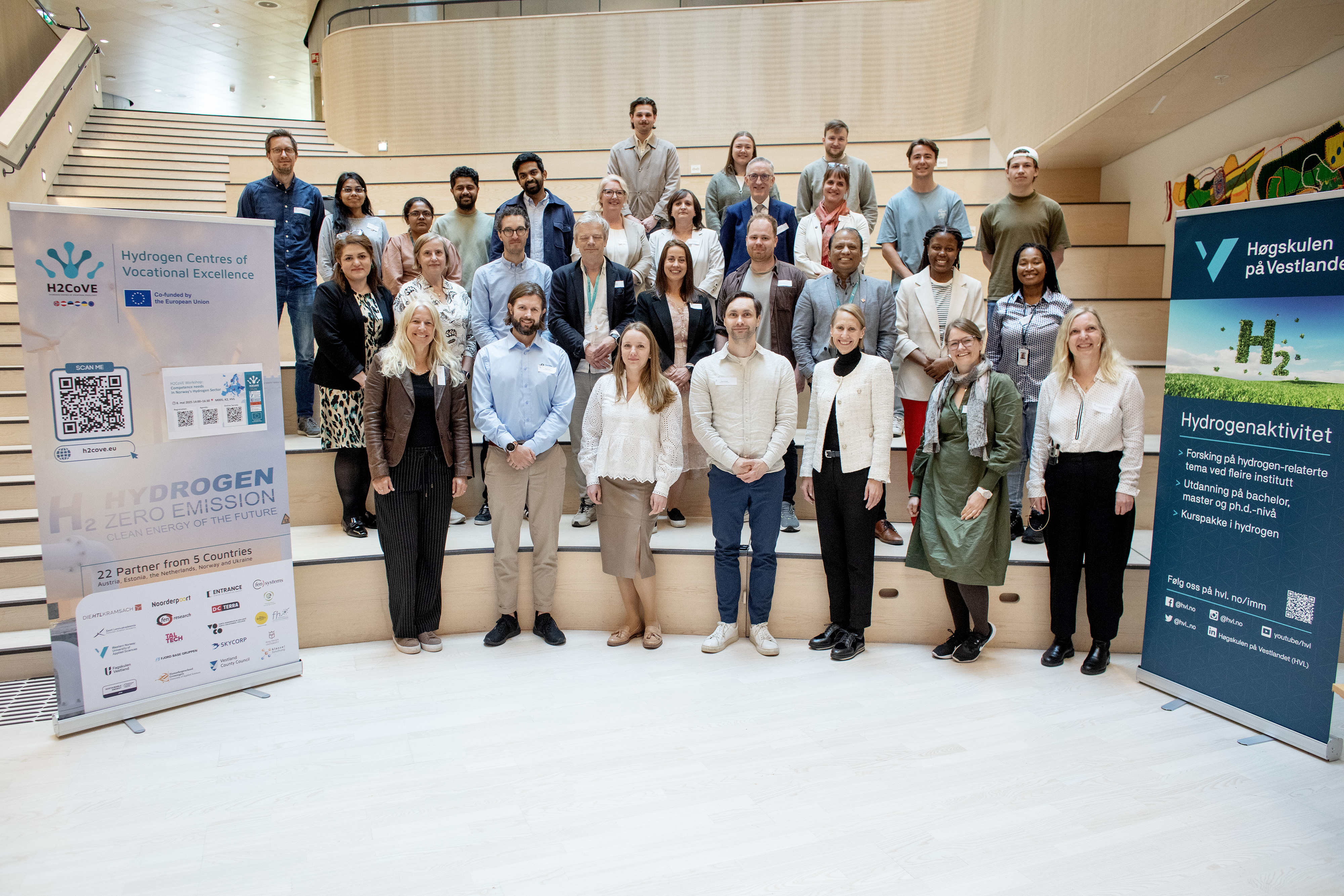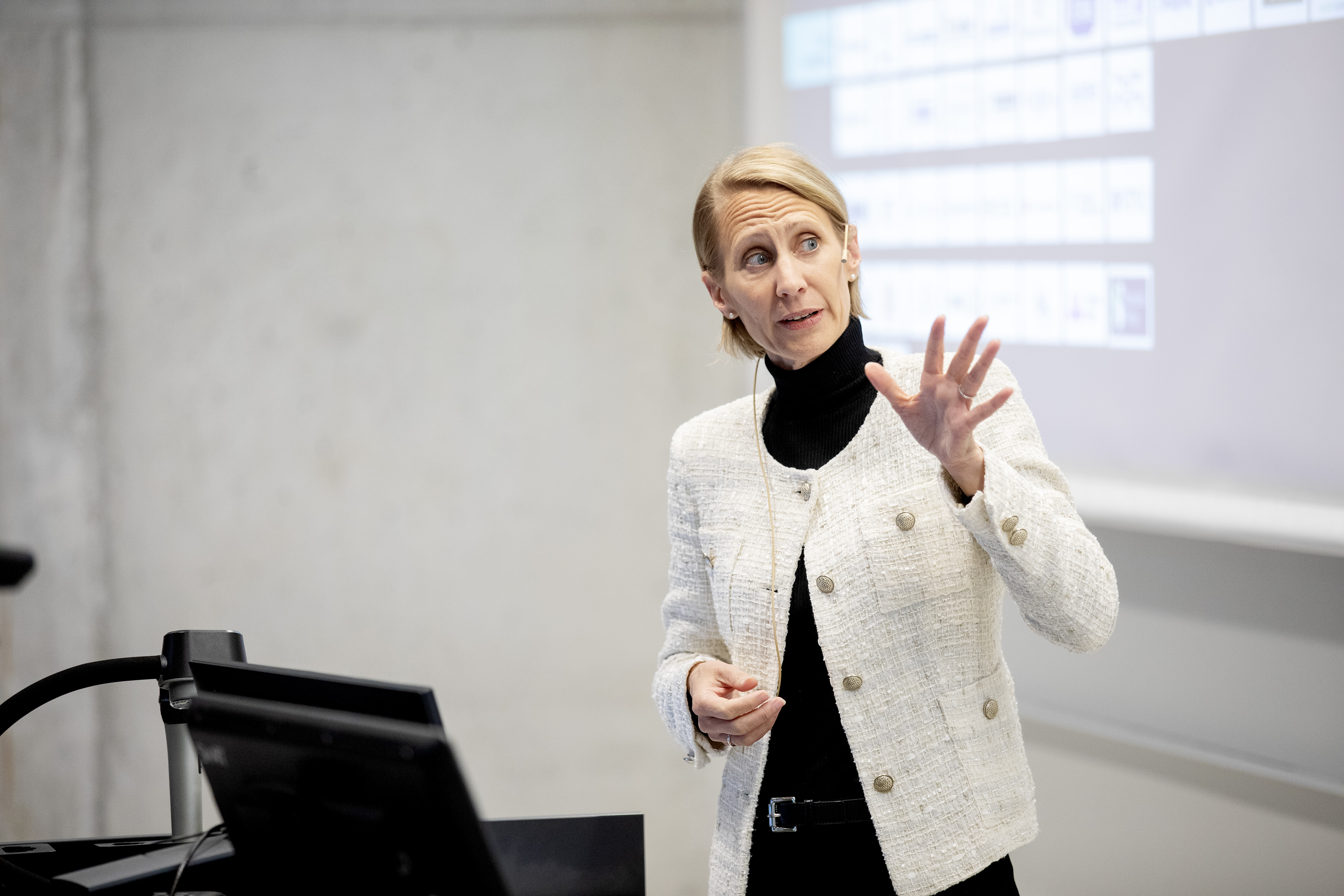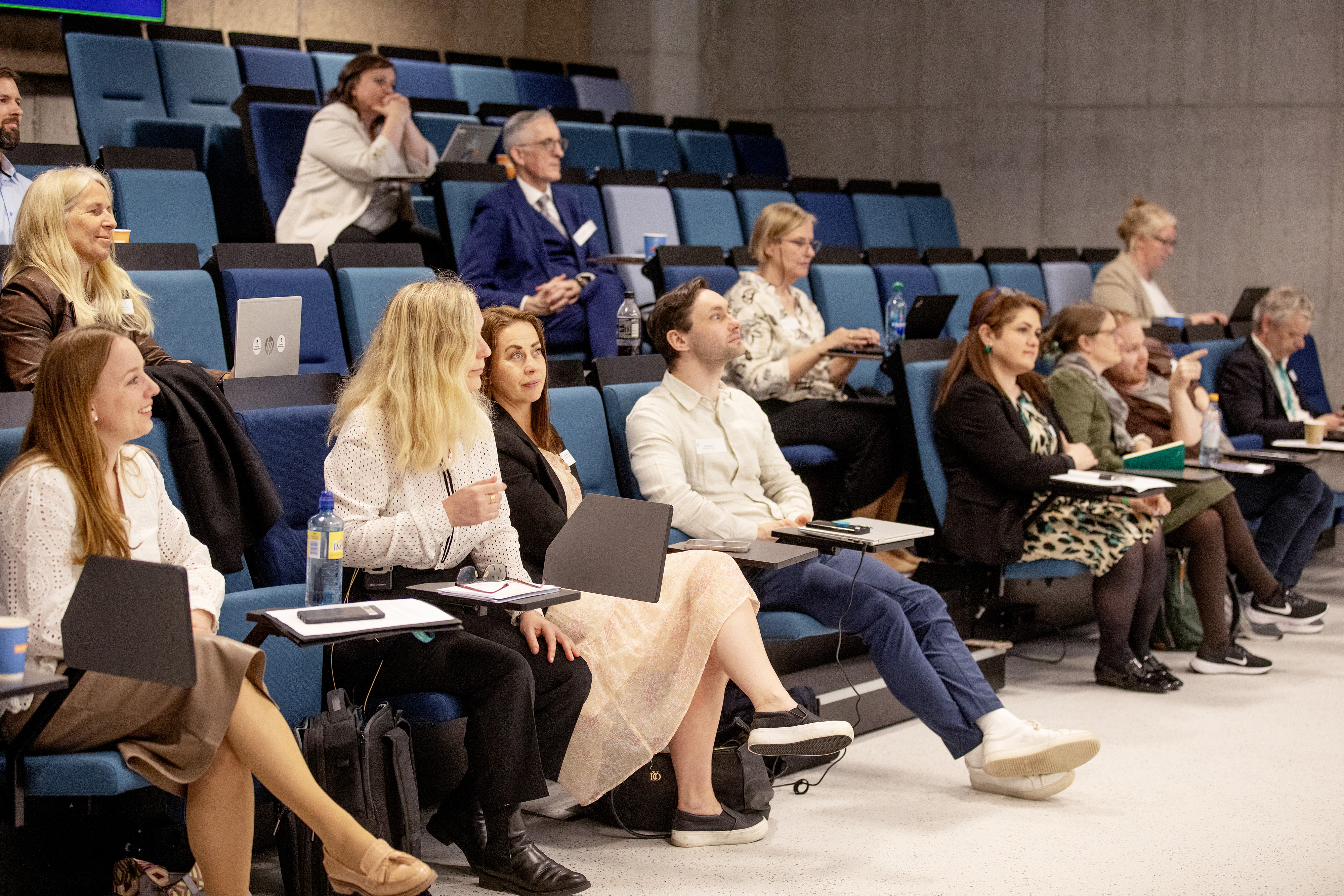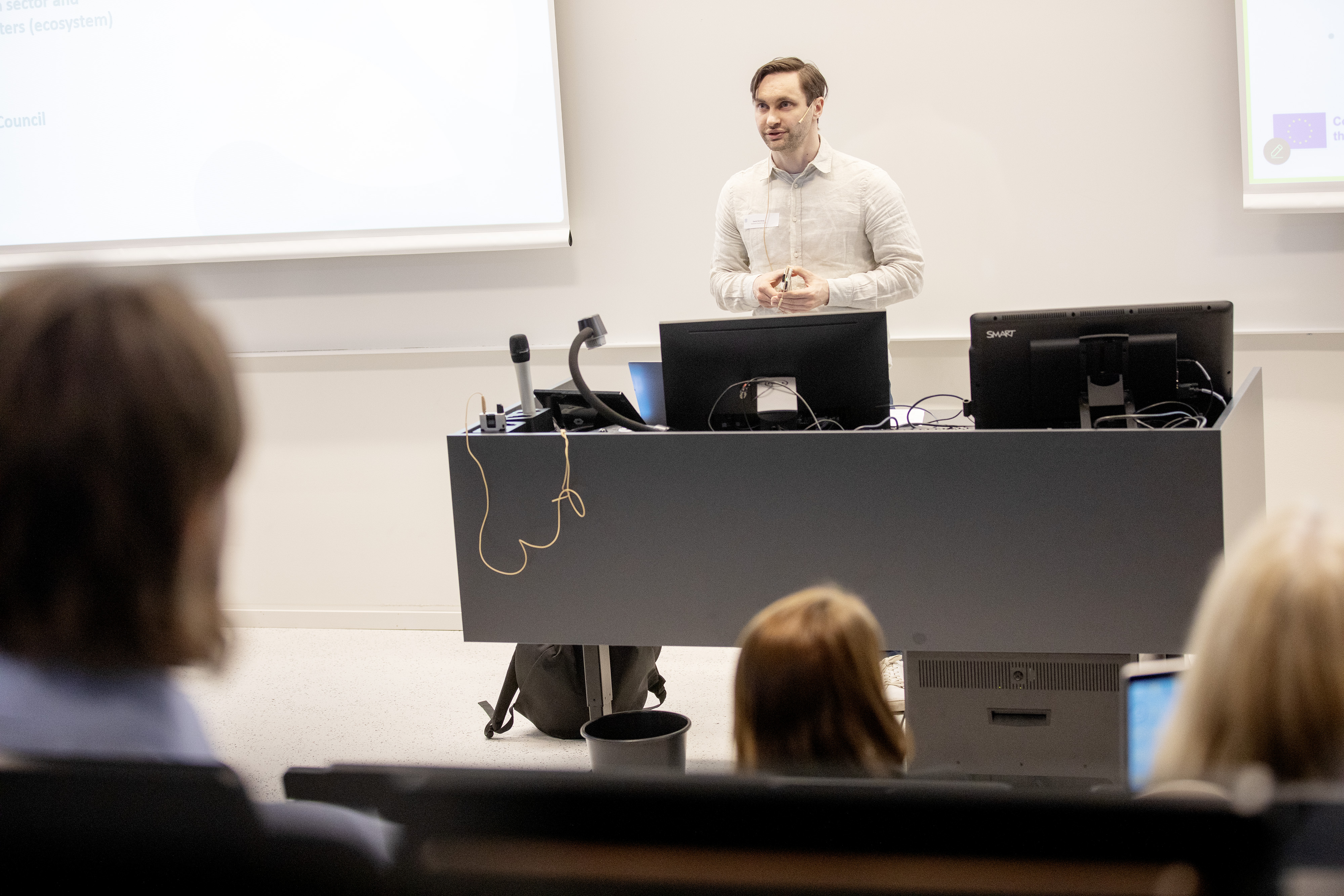The H2CoVE project hosted a Regional Ecosystem Talk in Vestland, Norway, bringing together 32 participants from educational institutions, industry, and public bodies to discuss skills development for the emerging hydrogen economy.
H2CoVE Ecosystem Talk in Vestland: Strengthening Skills and Collaboration for the Hydrogen Economy
© 2025 by Sustainable Energy. Video recorded during the H2CoVE Ecosystem Talk in Vestland, Norway. Music: Envato. All rights reserved.
The meeting featured contributions from Western Norway University of Applied Sciences, Fagskulen Vestland, Vestland County Council, and partners such as Saga Fjordbase, Sustainable Energy, HYDS, Østfold Energy, and CYIENT Norway AS. Academic voices from the University of Bergen, Stellenbosch University, and the North Adriatic Hydrogen Valley also took part in the dialogue.
The session provided valuable perspectives on how hydrogen-related skills development is being approached at national, regional, and European levels, highlighting the need for coordinated efforts across governance and education systems.
The afternoon focused on presenting key findings from the H2CoVE project’s data collection. An interactive discussion followed, where participants reflected on practical training needs, emerging skill demands, and the growing pressure on educational institutions to adapt quickly to industry expectations.
Participants emphasized the importance of hands-on training infrastructure, collaboration between schools and companies, and the development of short, flexible courses such as micro-credentials to support upskilling. The need to attract a more diverse workforce to the hydrogen sector was also discussed.
As the hydrogen economy expands, the Vestland region will play an important role in bridging gaps between education and industry. Western Norway University of Applied Sciences and Vestland County Council continue to lead the regional effort within the H2CoVE project, working to build competence and capacity for a climate-neutral future.






